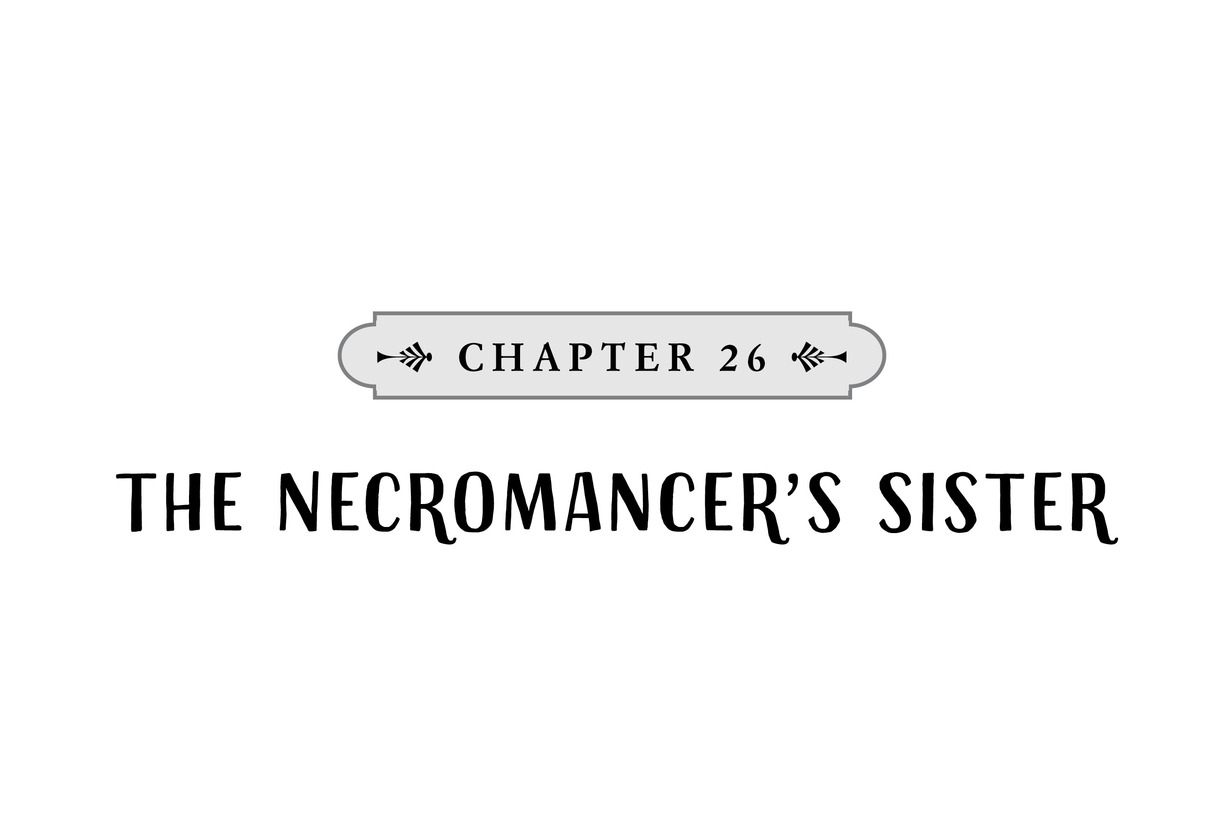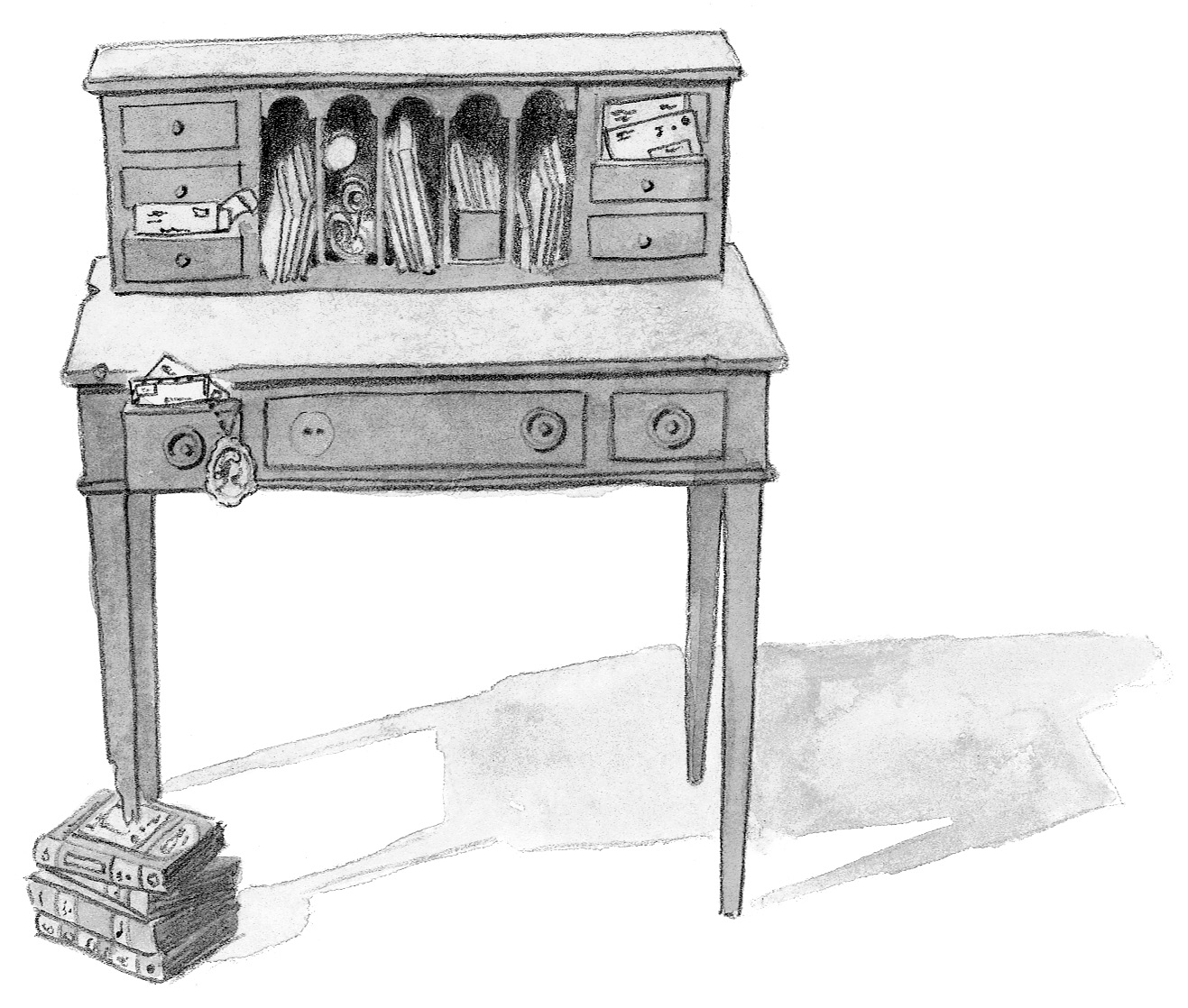
August poured tea into a cup and uncapped the bottle of bourbon.
“But I told you, sugar,” protested Hydrangea, “I’m in no particular need of fortified tea.”
“Um…I think,” responded August, wincing, “you’ll be wanting a cup of it very shortly. We have a small problem.”
He glanced nervously over his shoulder, down the hallway.
“A small zombie problem.”
“Zombie?” repeated his aunt, mystified.
“Now, Aunt Hydrangea, please try to remain calm. I promise that she’s perfectly harmless.”
“She? Harmless? August, what in heaven are you talking about?”
August turned and gestured toward someone beyond Hydrangea’s line of sight. The lady’s eyes bulged at the sound of heavy, uneven, dragging footsteps. As they progressed along the hallway toward the parlor, Hydrangea stood up swiftly and turned to August in alarm.
August had done his best to clean Claudette up a bit, wiping off her face and combing most of the debris from her hair. But her appearance was still, at best, disconcerting, and upon seeing her, Hydrangea reacted as you might expect: she clutched the back of the fainting couch, stifled a scream in her handkerchief, and looked set to swoon.
Until something surprising happened.
August watched as his aunt’s expression of horror morphed into something else, something utterly unexpected: recognition.
“Why, color me amazed,” said Hydrangea, peering at Claudette with disbelief. “It can’t be.” The gripped handkerchief fell to her side, and she took a step forward.
“Claudette DuPont?”
Hydrangea fetched one of the family photographs that lingered on the mantel, propped behind the headless goatherd clock. She smiled nervously as Claudette sat heavily beside her on the fainting couch. August approached from behind, peering over his aunt’s shoulder.
“There she is,” said Hydrangea, pointing.
The mildewed, antique image was of the sort that was photographed in black-and-white, then colored by hand. Beneath it, in ambitious lettering, was displayed the name of the studio where it had been created: “Photography by Fontaine. New Madrid.”
The portrait depicted two children. The girl, who stood holding a kitten, was clearly Claudette. The photograph could not have been taken very long before she died, for her height appeared much the same. It was strange to see her looking rosy-cheeked, neatly dressed, and generally rather pretty.
The other child was a boy, around August’s age, seated. His piercing pale gold eyes were unusually large and round, rendered larger by large, round glasses. In his lap he held a specimen jar, inside of which rested a skull-shaped fossil.
“Is that…” August was incredulous. “Is that Orfeo DuPont as a boy?”
Hydrangea nodded.
“You favor him, August!”
It was true. The resemblance between August and the grown-up Orfeo was certainly of note. But August was, after all, just a boy, many years from twirled mustaches and an adult frame. The similarity between the DuPont boys at the same age was remarkable.
“She thinks I’m him,” said August in quiet revelation. “That’s why she’s following me around. She thinks I’m her brother!”

As if to confirm this theory, Claudette beamed up at him with a grin of devotion.
“Great-Aunt Claudette,” said Hydrangea with some pride, “is a family legend.” She patted the zombie’s arm. “Only nine years of age, when she just up and drowned in the canal. They say she jumped from the gazebo roof. Or fell. Although why she might have been up there in the first place, no one has ever known. Such a tragedy.” She offered Claudette a sympathetic smile.
“What about my tragedy?” cried August, striding around the couch to face his aunt. “I just started to make friends. To have a life of my own. But now this”—he flapped his hand at Claudette—“is ruining everything!”
He stuffed his hands in his pockets and got a little pouty.
“Beauregard already thinks I’m peculiar. Now I’ve got some zombie following me around because she thinks I’m her dead brother! And now you tell me that she’s a DuPont? That in fact we are related? That this raggedy, rotting thing is my great-great-aunt, or whatever?”
Claudette grunted and gazed dolefully down at her tattered dress.
“Sorry, Claudette,” muttered August, with some level of apology, “but you’ve been dead for a long time. It’s not pretty.”
August swiftly dropped to one knee and grabbed his aunt’s wrist.
“Aunt Hydrangea,” he said urgently. “Were you aware that the DuPont treasure is also known as the Zombie Stone?”
“Why, everyone knows that, sugar,” responded Hydrangea, as if August were the only person in the world who didn’t. “It’s how Orfeo acquired his zombies for that wretched act of his. What was it again? The Dancers of Death, or some such dreadful thing?”
“You didn’t think to mention it?” cried August.
“How was I to know,” Hydrangea bristled defensively, “that you had a small zombie problem?”
August bit his lip and lowered his eyes. He listened to his breath for a moment and quieted his frustration.
“Aunt,” he said again, with kind, controlled calmness, “I need to return Claudette’s spirit to the world it belongs in. The other world, where the dead reside. Preferably by tomorrow,” he added, mindful of the crawfish boil at Château Malveau.
He stood.
“In order to do so, I have to find the Zombie Stone. Do you have any idea where it might be, or what happened to it?”
Hydrangea opened her mouth and shrugged helplessly.
“It’s for me, ma’am”—August fixed her gaze intently—“not your sister.”
“I mean…” The lady shook her head, racking her brains. “Uncle Orfeo was a bit of a spendthrift, sugar. I’m afraid we’ve had a few of those in the family.”
“Aunt Orchid told me,” said August. “She said that our circumstances…”
“Orfeo,” Hydrangea interrupted with a glower, “sold off many DuPont heirlooms to pay his debts, including most of the antique family jewels and gems. I’d be very surprised if the Cadaverite was not among them. It would have fetched a handsome sum, I’m certain of it.”
“Do you know who might have bought them?”
Hydrangea shook her head.
“It all happened, oh my, long before I was born.” She paused, had a thought. “But I could swear there’s a stack of old bills and receipts hanging around the house somewhere. Perhaps there would be some record of the sale in those. They were in a cupboard, I believe…or no, perhaps a bureau. Now, where is that old desk?”
She thoughtfully tapped the glass protecting the photograph.
“It had one short leg, as I recall, and had to be propped up with books.”
